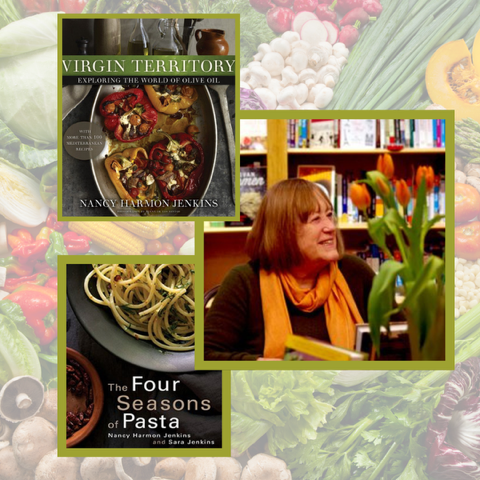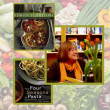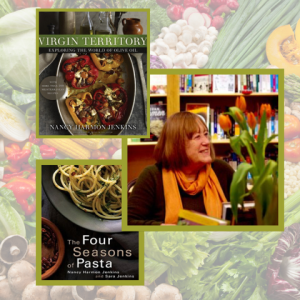As spring has arrives this week, with bright color and sullen weather, it seemed a perfect opportunity to ask Camden Garden Club Garden Expo, guest speaker about Maine food history.
Nancy will be speaking at the Camden Garden Club Inaugural Garden Expo, “Edible Gardens & Bountiful Tables,” which be held Thursday, July 17, 2025. Get your tickets and all details right here.
Nancy, what is the focal point of your talk on July 17 at the Garden Expo?
"As a long-time gardener and food writer, I want to talk about the diaries of a fellow Mainer, Martha Ballard. Reading her diaries is a window into her daily life. Martha, in the 18th century, supplied everything her family needed, including the corn meal and wheat flour that her husband milled. She details everything she plants, her seeds, plants, and the cabbage stumps that made a wonderful salad. She brewed her own beer and, of course, made her own bread. Families traded one good crop for another. The custom of barter was alive and well. It was a given. 'Mrs. Daily gave me a squash in exchange for two skeins of my wool.' Her life fascinates me."
In the 1700's, Martha must have had contact with the Wabanaki, how would you contrast or compare the growing practices of the Wabanaki tribe?
"The difference between an American Indian garden and an English garden are quite different. The Indians move with the seasons and pursued what was available. The men would start at Dammariscotta Mills capturing the elks in the fall and in deep winter, they would hunt moose. They had vast territory that they roamed for the seasonal treasures of the earth. They preserved corn and dried beans for the long winter. They weren’t growing elaborate gardens, they were living with Mother Nature because they understood her growing patterns. The Indians were constantly on the move within the parameters of their watershed."
How do you see Martha's life and the more mobile traditions of the Wabanaki translating into your personal history and a Maine childhood in the 1940's?
"I have always had a vegetable garden wherever I have lived, be it Beirut or Rome. Traditions in the garden are passed down to accomodate life styles. My father is a good example. He closed his law office every night in the summer at 5PM, changed his clothes and worked his vegetable garden till dark. He grew green beans and peas. There was an unspoken neighborhood competition to see who had the first peas of the season. Peas were always eaten fresh. He grew broccoli, onions, carrots, cabbage. He and my mother stored squash in the attic and canned tomatoes, some grown by neighbors. When we bought the freezer in 1952, a leg up from having the ice delivered and placed on top of ice box. The ice was stored in sawdust in the barn of Mr. Young on the corner of Youngtown Road. Strawberries could be frozen. They grew sweet peppers for stuffed peppers and cucumbers for piccalillie. One custom, I recal distinctly, the early lettuce was served as first course, with vinegar and sugar. How customs change, and yet the more things change, the more they are the same. The revival of the home garden is alive and well to say nothing of our wonderful local farms. There are a many new and innovative young farmers along the mid-coast and inland."
What do you have planted for this season?
"I have fava beans, garlic, wild berries and a wonderful grape arbor. My garden is a mix of ornamental and native blooms with a managable selection of vegetables and fruit. I can't resist the farmer's market in Belfast, Camden and Rockland from now till autumn. We are so fortunate in Maine and spoiled for selection."
Nancy will be available to sign her books. Bring your own collection or purchase on July 17. We thank Left Bank Books for working with us. Interested in reading Martha Ballard's book before the Expo? You can find it here.
The oldest garden club in Maine, the Camden Garden Club cultivates the art of gardening to its fullest sense, develops and preserves beauty in and around Camden, and promotes civic improvements, education, and conservation of natural resources. The inagural Garden Expo speaks to our mandate. It is a new and innovative day of "take-home" ideas and information addressing climate change, local gardening and cooking plus how to createa beautiful summer table.























